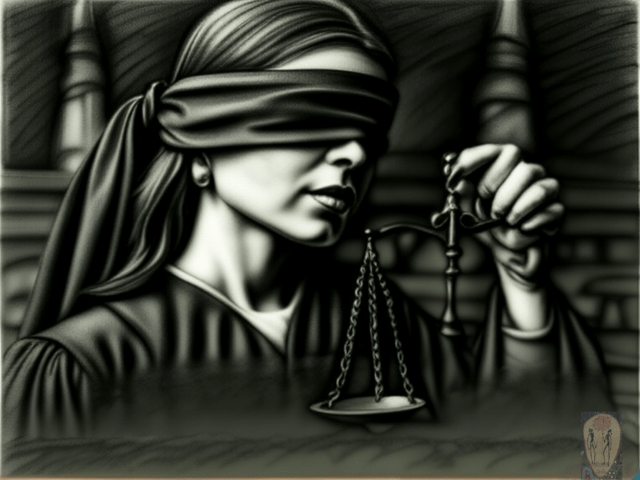
Abstract
This paper examines the dichotomy between the rule of law and the rule of man, particularly in the context of recent events in Australia involving the suppression of dissent, the persecution of whistleblowers and high-profile cases like those of Mary Kostakidis and Hash Tayeh. By analysing the philosophical underpinnings, practical implications and historical context of both paradigms, this research highlights a troubling shift toward arbitrary governance in Australia. The analysis suggests that actions taken against whistleblowers and dissenters reflect a prioritisation of political interests over legal accountability, ultimately undermining democratic norms. Recommendations for restoring the rule of law in Australia are proposed, emphasizing the need for legal reforms and enhanced protections for dissent.
Introduction
The concepts of the rule of law and the rule of man represent opposing paradigms that profoundly shape governance, justice and societal trust. The rule of law emphasises governance through established legal principles that ensure transparency and protect individual rights, while the rule of man places authority in the hands of individuals or institutions, often leading to arbitrary decision-making. This paper investigates how recent actions in Australia – specifically targeting whistleblowers, suppressing protests against Israeli actions in Gaza and the legal cases surrounding Mary Kostakidis and Hash Tayeh – illustrate a concerning trend toward the rule of man. By exploring the philosophical foundations, practical implications, strengths, weaknesses and historical context of both paradigms, this research argues that Australia’s current trajectory threatens the core principles of the rule of law.
Philosophical Foundations
The rule of law is rooted in the belief that governance should be guided by established laws rather than the whims of individuals. Aristotle in his Politics, argued that “law should govern” to mitigate human biases and ensure fairness. This notion was echoed in Roman legal traditions and later in the Magna Carta of 1215, which aimed to limit the arbitrary power of the monarchy. Enlightenment thinkers such as John Locke and Montesquieu further contributed to this discourse by advocating for the consent of the governed and the separation of powers, respectively. AV Dicey in his seminal work Introduction to the Study of the Law of the Constitution (1885), formalised the rule of law by emphasising three core principles: the supremacy of law over arbitrary power, equality before the law, and judicial protection of rights.
Conversely, the rule of man is characterised by the discretionary authority of individuals or groups, often reflecting personal judgment rather than legal standards. This concept aligns with Thomas Hobbes’ defense of absolute sovereignty, which posits that human discretion can, at times, supersede legal frameworks. In the context of Australia, the rule of man has been evident in discretionary actions that target dissent, particularly those that align with political interests rather than legal impartiality.
Practical Implications
The rule of law fosters a predictable and accountable governance framework that protects individual rights and promotes public trust. This is achieved through clear and stable laws, independent judicial enforcement and institutional safeguards such as the separation of powers. In contrast, the rule of man relies on discretion, leading to arbitrary governance where decisions reflect state priorities rather than legal principles. This often results in a lack of accountability and transparency, eroding public trust and creating an environment of fear among dissenters.
The recent crackdown on dissent in Australia, particularly against whistleblowers and protestors, exemplifies the erosion of the rule of law in favour of the rule of man. The misuse of laws, such as racial vilification statutes to silence critics of government policies represents a departure from the principles of accountability and justice that underpin the rule of law.
Strengths and Weaknesses
The rule of law offers significant advantages, including impartiality, stability and protection against tyranny. However, it can also be rigid and may risk injustice when laws are misapplied. The rule of man, while providing flexibility and simplicity, often leads to arbitrary governance, instability and the erosion of rights. The balance between these two paradigms is crucial for maintaining a just and equitable society.
Historical Context
The historical roots of the rule of law in Australia can be traced back to the Magna Carta and the establishment of judicial independence in the Australian Constitution (1901). Significant historical events, such as the Eureka Rebellion (1854), reflect a long-standing resistance to arbitrary power. However, colonial governance often favoured the rule of man, as seen in policies like the White Australia Policy (1901–1973). While modern Australia has made strides toward the rule of law, recent actions against dissenters signal a reversion to rule-of-man tendencies, reminiscent of authoritarian regimes.
Australia’s Crackdown: A Rule-of-Man Shift
Since October 2023, Australia’s response to whistleblowers and protests against Israel’s actions in Gaza, which have been described by Amnesty International as genocidal, indicates a troubling shift toward the rule of man. This shift undermines the core principles of the rule of law, including transparency, accountability and the protection of rights. The cases of Mary Kostakidis and Hash Tayeh serve as poignant examples of this trend.
Whistleblower Persecution
Whistleblowers play a critical role in upholding the rule of law by exposing misconduct and corruption. However, Australia’s legal framework has increasingly punished whistleblowers, reflecting a reliance on discretionary power. The Public Interest Disclosures Act 2013 ostensibly protects whistleblowers, yet the National Security Legislation Amendment (Espionage and Foreign Interference) Act 2018 imposes severe penalties for disclosing classified information. Notable cases include:
• David McBride: In May 2024, McBride was sentenced to 5 years and 8 months in prison for exposing Australian war crimes in Afghanistan. The prosecution prioritized state secrecy over public interest, exemplifying the rule-of-man approach.
• Witness K and Bernard Collaery: Both were prosecuted for revealing Australia’s covert operations in Timor-Leste. Although Collaery’s charges were dropped in 2022, the chilling effect on whistleblowing remained significant.
• Gaza-Related Disclosures: A 2023 report implicated Pine Gap in intelligence sharing with Israel, potentially facilitating attacks on Gaza. Whistleblowers face severe prosecution risks, further undermining transparency.
These cases violate Dicey’s principles, as punishing whistleblowers undermines the supremacy of law and erodes equality before the law.
Suppression of Gaza Protests
Since October 2023, protests against Australia’s support for Israel have escalated. The Labor government’s response has reflected rule-of-man tendencies:
• Anti-Protest Laws: New legislation in Victoria aims to suppress protests, prioritising state control over the right to assembly.
• Police Violence: The Disrupt Land Forces protests in September 2024 resulted in significant police presence, arrests and injuries, with excessive force employed against peaceful demonstrators.
• Protest Bans: Efforts to ban protests in New South Wales, citing vague safety concerns, exemplify the discretionary intimidation of dissent.
• Media Campaigns: Mainstream media, particularly Murdoch-owned outlets, have framed protests as antisemitic, justifying state repression.
• Professional Intimidation: The Australian Health Practitioner Regulation Agency investigated medical practitioners for expressing anti-genocide views, while academics faced smear campaigns, creating a climate of fear and self-censorship.
The Mary Kostakidis Matter
Mary Kostakidis, a prominent journalist, represents a significant case of the misuse of racial vilification laws to silence dissent. In July 2024, the Zionist Federation of Australia lodged a complaint against her under Section 18C of the Racial Discrimination Act 1975, alleging her social media posts constituted racial vilification. The escalation of this complaint to the Federal Court in April 2025 raises critical concerns about the misuse of legal frameworks for political ends.
• Background: Kostakidis shared a speech by Hezbollah leader Hassan Nasrallah, which led to allegations of promoting antisemitism. Her defence emphasises that her posts were journalistic in nature, aimed at reporting rather than endorsing extremist views.
• Misuse of Section 18C: The complaint against Kostakidis reflects a selective enforcement of racial vilification laws, undermining the original intent of the legislation and threatening freedom of speech.
• Political Context: Kostakidis’s history of activism, including support for Julian Assange, may have amplified her targeting. The case illustrates the chilling effect of using legal mechanisms to suppress dissenting voices.
The Hash Tayeh Case
Hash Tayeh, a Palestinian-Australian activist, exemplifies the rule of man’s misuse of legal mechanisms to suppress dissent. Charged under Section 18C following a speech where he labelled Zionism as terrorism, Tayeh’s case highlights the contentious nature of political speech in Australia.
• Background: Tayeh’s activism has drawn significant attention, resulting in ongoing harassment and legal challenges. His statements have been framed as inciting hatred, yet he maintains that his comments targeted a political ideology, not a racial group.
• Legal Implications: The charges against Tayeh under Section 18C raise critical questions about the application of racial vilification laws in the context of political discourse. His defence argues that the intent of his speech aligns with public interest commentary, protected under free expression rights.
• Chilling Effect: The prosecution of Tayeh reflects a broader trend of targeting activists and dissenters, creating an environment of fear and self-censorship within the pro-Palestinian community.
Rule of Law Violations Across the Crackdown
The Australian government’s actions against whistleblowers, protesters, and critics of Israel represent clear violations of the rule of law:
• Arbitrariness: The selective prosecution of individuals based on political alignment undermines legal impartiality and accountability.
• Unaccountability: The government’s shielding of its complicity in Gaza while punishing critics reflects a troubling disregard for the principle that no one is above the law.
• Erosion of Rights: Restrictions on speech, assembly and whistleblowing undermine both constitutional and international rights, further entrenching a culture of repression.
• Political Subordination: The Labor government’s prioritisation of foreign policy interests over public sentiment indicates a shift toward elite-driven governance, reminiscent of the rule of man.
Despite limited victories for the rule of law, such as withdrawn protest bans and ongoing defences by Kostakidis and Tayeh, the fragility of these gains underscores the need for vigilance in protecting democratic norms.
Comparative Analysis
A rule-of-law approach would prioritise transparency, accountability and the protection of rights, ensuring that laws like Section 18C are not misused to suppress dissent. In contrast, the current crackdown on whistleblowers and dissenters, exemplified by the Kostakidis and Tayeh cases, reflects a deviation from these principles. The discretionary enforcement of laws, coupled with a lack of accountability and the suppression of dissent, illustrates a clear trend toward the rule of man.
Broader Implications
The ongoing crackdown in Australia poses significant risks for democratic erosion, setting a concerning precedent for the repression of dissent globally. By shielding Australia’s role in alleged war crimes in Gaza and undermining public trust, the government’s actions threaten the very foundations of democracy.
Recommendations
To restore the rule of law in Australia, several reforms are necessary:
1. Whistleblower Protection: Strengthen legal protections for whistleblowers to encourage the disclosure of misconduct without fear of retribution.
2. Reform Section 18C: Ensure that racial vilification laws are not misapplied to suppress political speech and repeal repressive anti-protest laws that infringe on the right to assembly.
3. Investigate Complicity: Conduct thorough investigations into Australia’s complicity in Gaza, including the role of Pine Gap and arms exports to Israel.
4. Rights Protection: Implement measures to protect rights through proportionate policing and the dropping of charges against dissenters.
5. Judicial Oversight: Strengthen judicial oversight to prevent the misuse of legal mechanisms for political ends.
Conclusion
Australia’s recent crackdown on whistleblowers, Gaza protesters, and the cases of Mary Kostakidis and Hash Tayeh illustrate a troubling shift toward the rule of man, where discretionary state power overrides the principles of the rule of law. The misuse of racial vilification laws against Kostakidis and Tayeh, alongside the persecution of whistleblowers, reflects a governance model driven by political alignment rather than legal accountability. While there are glimmers of hope in judicial defences, the erosion of democratic norms presents a significant threat to Australia’s global standing. By implementing legal reforms, investigating complicity, and protecting individual rights, Australia can work toward restoring the rule of law and ensuring that governance serves justice rather than arbitrary power.

